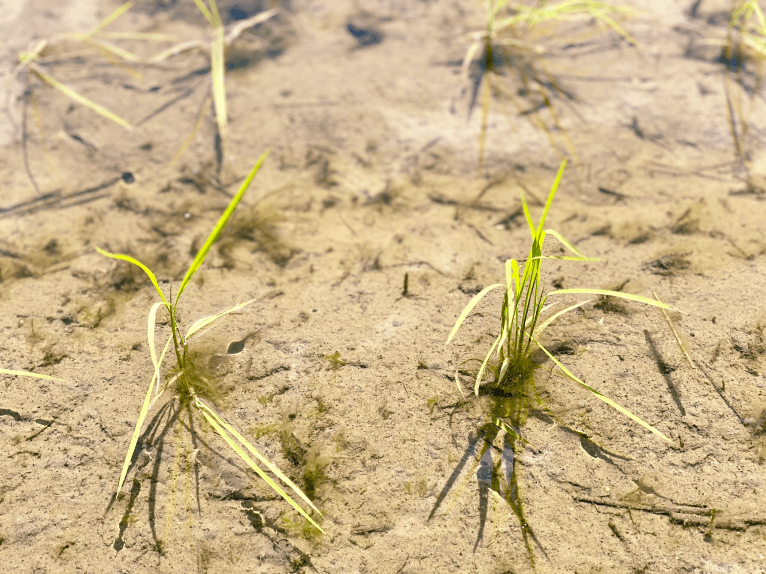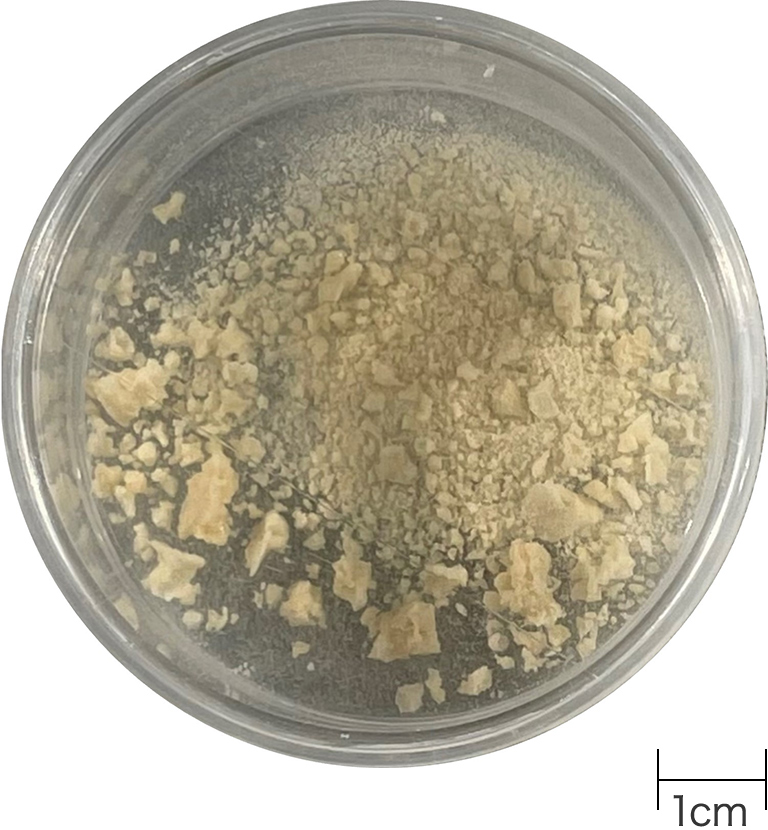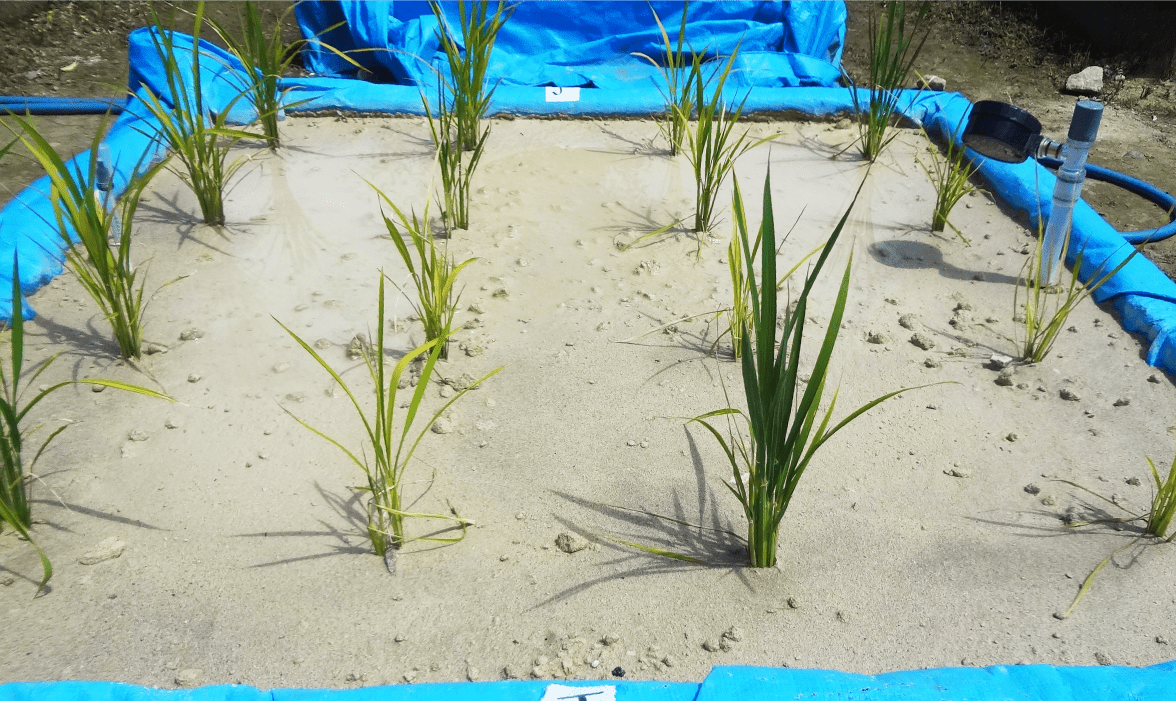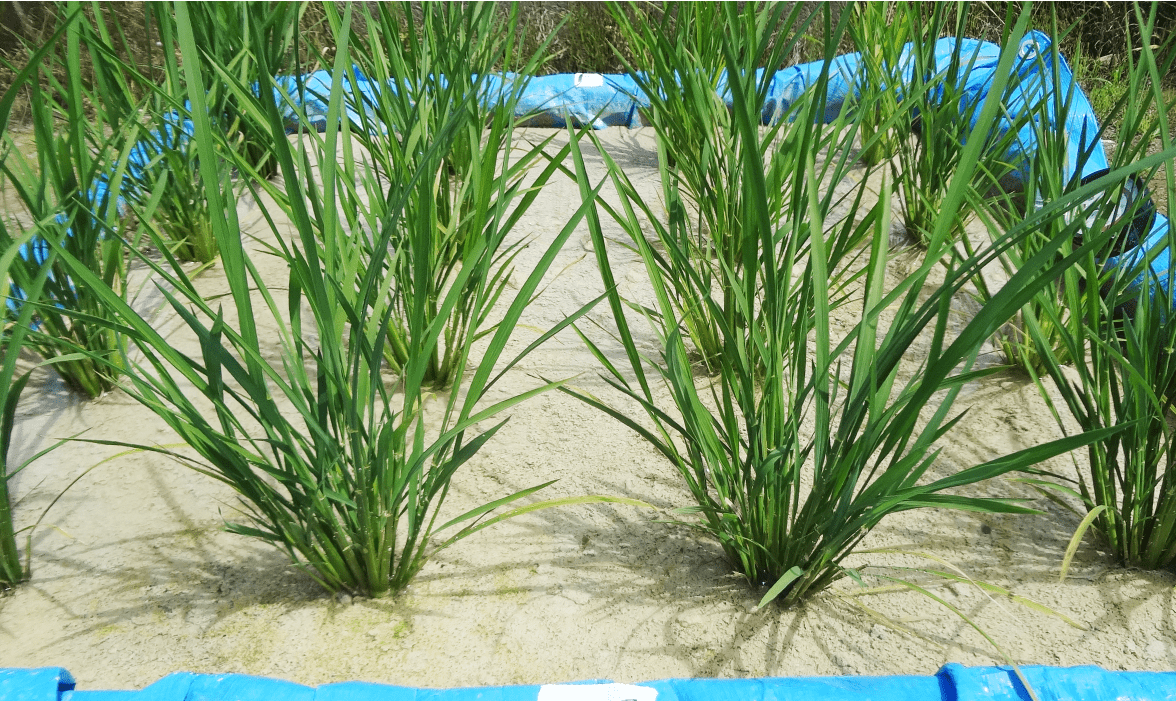PDMA
Next-Generation Iron Fertilizer Developed to Increase Food Production in Poor Soil
The Food Shortage Problem
By 2050, the human population is expected to reach 10 billion, this raises concerns about potential food shortages.
Urbanization is also causing a decline in agricultural areas on the periphery of cities. We believe that increasing productivity of the unfertile lands will contribute to a sustainable society. We have developed a next-generation biodegradable iron fertilizer that supplies iron to alkaline soil. We are currently working on an affordable production method of the fertilizer.
What is PDMA?
PDMA stands for Proline DeoxyMugineic Acid. It was jointly developed by Aichi Steel and Tokushima University. PDMA is synthesized by substituting a stable and inexpensive L-proline for the unstable and expensive L-azetidine-2-carboxylic acid used as a raw material for chemical synthesis of deoxymugineic acid (DMA) which is a natural product related to mugineic acid secreted from the roots of a gramineous plant.
Initiatives for Alkaline Poor Soil Improvements
Boosting plant’s iron absorption
One third of the land mass in the world are alkaline soil with a pH that is higher than 7. Iron is essential for plant growth but insoluble in such alkaline soil. Therefore, in alkaline soil, plants cannot absorb iron sufficiently and as a result they do not grow.

PDMA
PDMA (proline deoxymugineic acid) was developed jointly by Aichi Steel and Tokushima University. PDMA is a next-generation fertilizer that helps plants absorb iron in alkaline soil.
Spraying PDMA on alkaline soil allows plants to absorb iron, hence effectively recovering from iron deficiency.
Terms explanation
- Mugineic acid
A natural iron chelate substance secreted by plants. In 1976, Dr. Seiichi Takagi of Iwate University discovered this acid as an acid secreted from the roots of oat and rice. In 1978, Dr. Tsunematsu Takemoto et al. determined the chemical structure of the acid and named it "mugineic acid." - Iron chelate
Chelate means crab scissors in Greek. This molecule surrounds iron ions and makes them stable in alkaline soil.
Reference


Plant’s iron absorption mechanism
Iron absorption mechanism of gramineous plant

Iron absorption mechanism of plant other than gramineous plants

Gramineous plants, such as rice, barley, and corn, secrete mugineic acids from the roots and dissolve insoluble iron in the soil to absorb it as "mugineic acids - iron complex." PDMA acts in the same way as a natural mugineic acid, allowing plants to absorb iron.
Plants other than gramineous plants absorb ferrous ions (Fe2+) after reduction from ferric ions (Fe3+) in soil by reductase in their roots. PDMA is effective for all plants because mugineic acid-iron complexes and PDMA-iron complexes are also easily reduced to ferrous ion.
Environmentally friendly agent
In order to enable plants to absorb iron even in alkaline soils , artificial iron chelating materials, which are stable even in alkaline soils, are used in agriculture. However, there are concerns about environmental impacts because these chelating agents remain in the soil.
PDMA is a biodegradable iron chelating material which reduces the environmental impact.
Difference between the degradation of synthetic chelate iron and PDMA
Microorganisms were cultivated using chelating substances as a carbon source (synthetic chelate, PDMA, and citric acid). The variation of carbon remaining in the culture solution was measured by days. Synthetic chelates (EDTA) are not broken down by microorganisms and thus the amount of carbon in the culture fluid does not decrease.
Microbial degradation test of various chelates (OECD301A)

Effect
Field experiment of rice growth in alkaline soil (joint research with Ishikawa Prefectural University)


6 weeks after transplanting rice. In the image on the right, PDMA was given 2 weeks after transplantation (at 1.6 g per 1 m²).
In alkaline soil, plants cannot grow well because they cannot absorb the iron of the soil (left image: plants without PDMA). When PDMA is applied, rice absorbs iron and grows well as shown in the image on the right.
Experimental cultivation of squash, beans, and corn

If PDMA iron complex (Fe-PDMA) is applied to alkaline soil, the non-gramineous plants such as squash and beans grow well.
In the case of gramineous plants such as corn, Fe-PDMA is more effective than other iron chelates.
Future Development
We will increase food production in alkaline soil, which accounts for 30% of the world's total land mass, and support lives in those regions. We will also promote the greening of previously barren land and contribute to the reduction of greenhouse gases by promoting the absorption of carbon dioxide.
